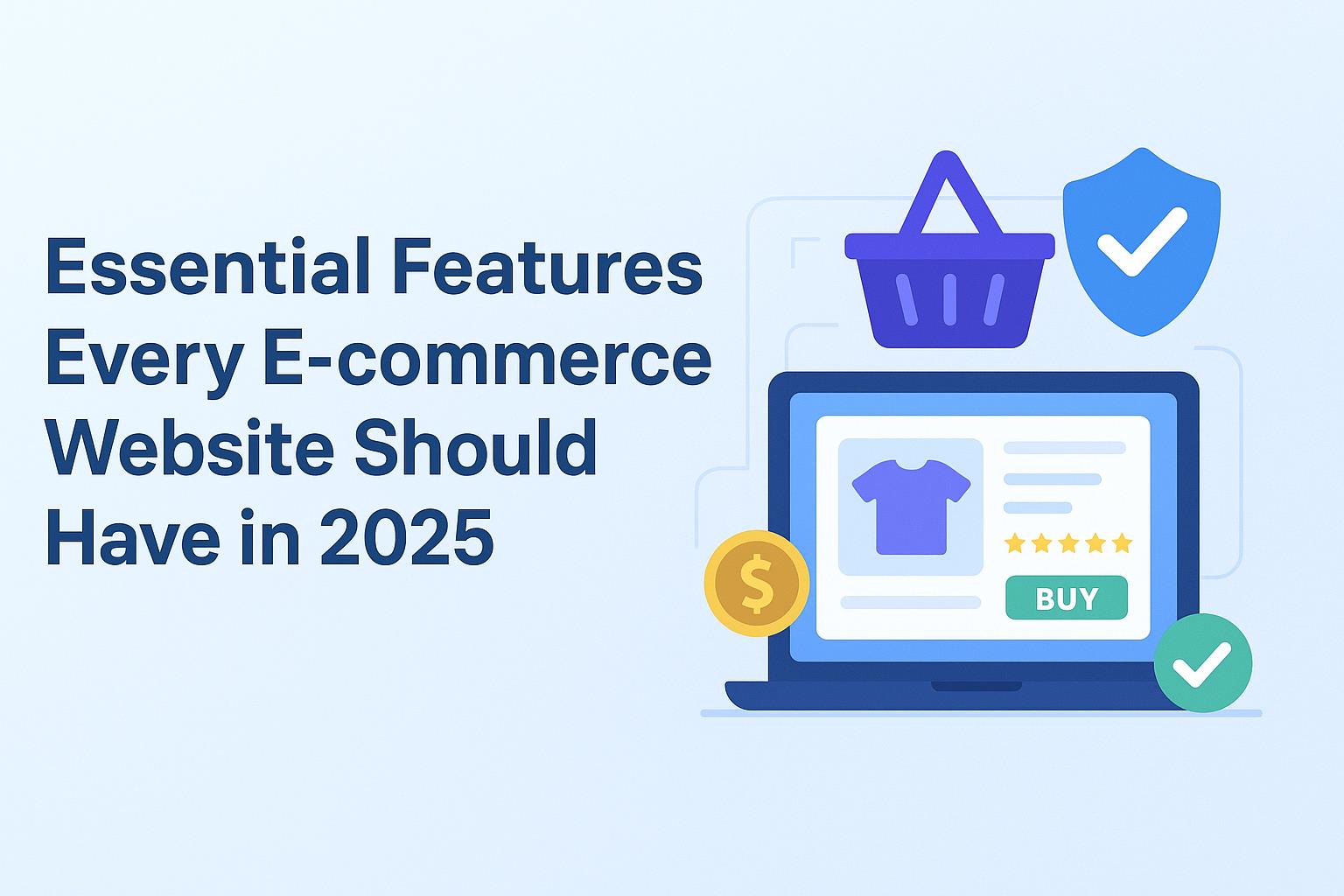Introduction
The e-commerce landscape is evolving at lightning speed. Nigerian businesses—and global brands alike—are competing not just on price but also on experience, speed, and trust. Customers now expect online shopping to be smooth, safe, and personalized.
In 2025, it’s no longer enough to just have an online store. To stay competitive, you need to integrate modern features that drive sales, improve customer experience, and build long-term loyalty. Here are the essential features every e-commerce website should have in 2025.
1. Mobile-First, Responsive Design
With over 70% of online shopping happening on mobile devices (Statista), your e-commerce website must prioritize mobile users. A mobile-first design ensures:
Faster loading times
Easy navigation on smaller screens
Optimized checkout process
2. AI-Powered Personalization
AI is transforming how customers shop. By analyzing browsing behavior, AI helps:
Recommend products tailored to user preferences
Offer dynamic pricing
Personalize email and marketing campaigns
Platforms like Shopify and Magento already integrate AI-driven product recommendations.
3. Multiple, Secure Payment Options
In Nigeria and globally, customers want flexibility. Your store should support:
Credit/Debit cards
Bank transfers
Mobile wallets (Flutterwave, Paystack, Apple Pay, Google Pay)
International options like PayPal
Adding PCI DSS-compliant payment gateways ensures security and builds trust.
4. Fast Loading Speed & Performance Optimization
Every extra second of load time reduces conversions by up to 7% (Google). To stay competitive:
Use content delivery networks (CDNs)
Compress images and videos
Implement lazy loading
5. One-Click Checkout & Guest Checkout
A complicated checkout is the #1 cause of cart abandonment. Features like one-click checkout (like Amazon) and guest checkout improve conversion rates instantly.

6. Strong Cybersecurity Features
With rising cyber threats, especially targeting small businesses:
Install SSL certificates (HTTPS)
Enable two-factor authentication (2FA)
Regularly back up customer and order data
Add visible trust badges
7. Smart Search and Filtering
A robust search bar with auto-suggestions and filters helps customers find what they want faster. In 2025, AI-powered search even interprets voice and image queries.
8. Integrated Social Proof (Reviews & UGC)
Today’s shoppers trust other customers more than brand ads. Add:
Verified product reviews
Star ratings
User-generated content (photos, videos of products in use)
Platforms like Loox or Yotpo make this seamless.
9. Omnichannel Experience
Customers expect a smooth experience across devices and platforms. Your e-commerce website should integrate with:
Social commerce (Instagram, TikTok Shop, Facebook Marketplace)
Mobile apps
In-store pickup options
10. Analytics & Reporting Dashboard
Data drives growth. Use built-in analytics to track:
Best-selling products
Customer behavior
Abandoned carts
Marketing ROI
Tools like Google Analytics 4 (GA4) and Hotjar give deeper insights.
Conclusion
In 2025, e-commerce success is not just about having an online store—it’s about creating a fast, secure, and personalized shopping experience. By incorporating these essential features, your website can reduce cart abandonment, increase sales, and stay ahead of competitors.
💡 Pro tip: If you’re building an e-commerce store in Nigeria, integrate local payment solutions like Paystack and Flutterwave alongside global ones for maximum reach. Contact us to build you a professional website.



